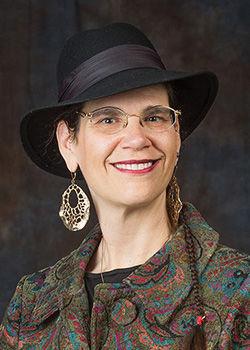It seems that so many times in life the more important moments are actually the ones that happen between the staged events. It's the last few words at the door when parting from a friend; it's the chat in the corridor between the sanctuary and the kiddush on Shabbat morning; it's the exchange while standing together in the elevator. They seem to offer wisdom, insight, or even comfort, in an unchoreographed moment. This is also what makes eavesdropping such a tempting activity.
But it is actually in the Beit Midrash, in the study hall, when eavesdropping is a holy endeavor. The learning in the library happens in the vacuum between a person and their book. Silence is a virtue - and commandment... In the Beit Midrash we are in the opposite situation! Here everything happens out loud - we think out loud, we doubt out loud, we challenge out loud. It is not necessarily a 'polite' setting. Nonetheless, it is exciting and quite scintillating. It is here that you may hear a question posed across the room that will move you to think a new thought. At times it could actually bring resolve to something that had been puzzling for quite some time. If you are familiar with this setup, then you are smiling with many memories as you read this description. If you have not yet experienced the Beit Midrash then I urge you to seek it out!
This week I walked into Ziegler's Beit Midrash in the midst of a passionate conversation between two of our students: Can a person who is an atheist serve as a shaliach tzibbur / lead the community in communal prayer. What is the relationship between one's theology and practice?
Eavesdropping and smiling I settled at a nearby table (location makes eavesdropping easier...) to prepare this dvar torah. I start reading the 18th century mystic, Rabbi Chayyim Ben Atar's commentary on Vayikra / Leviticus 19:4 out loud. It is now their turn to eavesdrop:
Our pasuk / verse teaches us: "Turn not to idols, nor make to yourselves molten gods, I am the Lord your God"
To this Rabbi Chayyim Ben Atar comments:
"Do not turn to idols". This verse prohibits idolatrous thoughts. One should not turn one's thought in that direction".
The two students look at me and I challenge them: being an atheist isn't idolatry! On the contrary... there are many people that believe in God, but the image of God that they have created in their mind seems so very close to idolatry! This is not the case of the atheist...
Rabbi Chayyim Ben Atar moves on to the second part of the pasuk:
"Neither construct for yourselves molten gods" - seeing that the Torah has already prohibited all kinds of idols why did it single out the molten gods as something we must not construct? Besides, why did the Torah have to stress the word 'lachem' - "for yourselves"?
Springing from these questions he will embrace the mystical teachings of the Tikkunei Ha'Zohar (a later addendum to the Zohar / the Book of Splendor) describing what happens, not to one's soul, but rather to one's body when observing, or transgressing, a mitzvah / commandment.
In the moment of observing an imperative, or refraining from performing a prohibition, the light of the Shechina / the Divine Presence envelopes the relevant organ of the body. You may want to think of it as a Divine energetic field that surrounds the hand that gives charity, or the tongue that holds back a juicy piece of gossip.
But what happens when a person makes the choice to transgress? When they keep their hand in their pocket, holding on to their change? When they wait for the 'right moment' to share gossip and hearsay? Is this a spiritually neutral zone in which we are not granted the light, and that in its own right would be a sufficient spiritual set back?
The second half of the pasuk teaches us that this is not the case. According to the Tikkunei Ha'Zohar we create an iron curtain in that moment - we create a 'molten god'!
The verse is therefore necessary to tell us that an intimacy, or God forbid, a distancing from God can happen in both realms - our thoughts and our actions. One's idolatrous thoughts can become a molten god, one's actions can also cut us off from God. It is not that God withdraws Him/Herself; it is that we lose our sight of God in those moments. Our vision and experience are blinded by the molten gods we've created and that shut us off from an ever present God.
In returning to our opening question regarding our holy atheist being a shali'ach tzibbur I am reminded of a comment that my teacher Rabbi Shlomo Carlebach (of blessed memory) made many years ago. He said that he loved Anti-Semites! "Why?" I challenged him... He responded: "Who thinks about Jews more consistently than Anti-Semites???" It is in this ilk that I pose to my students: "Who thinks about God more consistently than an Atheist?"
Shabbat Shalom.

